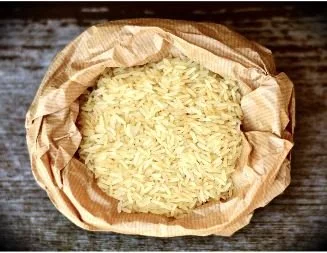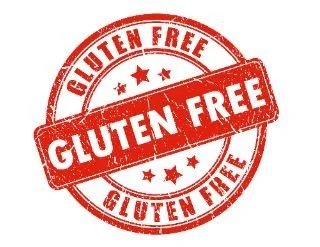Real World Nutrition News You Can Use
There is a lot of misinformation about nutrition. And nothing in this field is black-or-white, yes-or-no, but many shades of gray and a lot of “it depends.” So, my goal is to help clear up some of that misinformation with some snark, entertainment, and facts (with some opinion thrown in).
Many of these topics come from interactions with the public, friends, clients, and students. I see sheer misinformation about the science of nutrition, and I do my best to clear things up one blog post at a time.
If you have a topic you are wondering about, let me know.
Looking for a specific topic? Search to see if it is already here.
Do You Need a Sugar Detox?
Is sugar a toxin? Can we be addicted to sugar? And should we detox from sugar?
What are Sugar Alcohols?
If you are unfamiliar with sugar alcohol, I must first clarify that this isn't the kind of sugar found in distilled spirits, beer, or wine. Therefore, people who avoid alcohol – the drug – do not need to avoid sugar alcohol since they are not alcoholic substances. They are a substance that provides a sweet taste, but they provide half the calories of sugar (and the other carbohydrates) and do not contribute to tooth decay.
Low Down on Low-Calorie Sweeteners - Tabletop Sweeteners
One of the more "feared" things in nutrition are low-calorie sweeteners. Low-calorie sweeteners are another name for non-nutritive sweeteners or what many people call "artificial" sweeteners. People swear they cause cancer. Contribute to weight gain. Have all kinds of adverse health effects. Years ago, there was a laundry list of aspartame's negative impacts–all untrue. What is the truth?
What Are the Types Of Added Sugars?
Added sugar sources have many aliases – and go by many names. Not all these are the white granulated table sugar that most people think of, but different forms of sugar. Some of these may be for flavor – adding sweetness to the food, but they also may have important properties in the preparation, baking, or mouthfeel of a food.
Healthier Sugar Alternatives
When people refer to sugar, they think of or refer to white granulated table sugar. And people will often assume or mistakenly think that if they use a sugar alternative – such as honey or agave nectar- they are making a healthier choice or something more “natural.” But are any of these healthier alternatives to white sugar?
Natural Vs. Added Sugars
People say that they don’t eat carrots because they are high in sugar. They don’t eat potatoes because they are “all” sugar. They don’t eat fruit because they are high in sugar. Avoiding these plant foods because of their sugar content is among the more ridiculous statements I have heard. Why? Because naturally occurring sugar just isn’t the same as added sugars in food.
Carbohydrates vs Sugar
This is the first in a series about sugar and all things sugar. Sugar in the form of glucose is THE fuel for the brain, the fuel for all our cells, and the fuel for our muscles. So, when people make a blanket statement such as “sugar feeds cancer cells,” that is true, but only because sugar feeds ALL cells in the body.
Rice, Rice Baby
For years now, people tell me that they don’t eat carbs – bread, pasta, rice, and potatoes. – I must wonder why specifically these four foods considering that rice isn’t a nutritional zero or significant contributor of excess calories in the typical American diet either.
Is coffee good for me or not?
Growing up, too much coffee was not a good thing. At least that is what the commercials on television told me. Not that I drank coffee as a kid. Seeing those commercials made me think that this was not a good thing to consume. And what was too much coffee? In some cases, having only half a cup was an acceptable amount in any more than that was not. Only half a cup because my doctor said so.
Chocolate Milk and Post Exercise Recovery
Over the years, I have gotten many questions about what a good post-exercise recovery meal or drink is. While there are many protein drinks and recovery options, I come to the table with a budget-friendly option: chocolate milk. Many years ago, when my husband asked about a post-exercise recovery option, I suggested chocolate milk, and he said, “no I mean something with protein in it that can help with my recovery.” So, I said, “chocolate milk!”
September is Fruit and Veggies Month
Why we need to focus on a specific month for fruits and vegetables, I don’t know. Let’s devote the entire YEAR to fruits and vegetables. Focus on eating fruits and vegetables every day of every month of the year. However, here we are in September, formerly “National 5-a-Day Month,” and it is now “Fruit and Veggies Month.”
Why do nutrition recommendations keep changing?
Something I hear often, and you may have even said it: nutritionists are constantly changing their minds! If people are allowed to change their minds, and dietitians are human, aren’t they given the same freedom as other humans? The field of nutrition, a science, is supposed to have the answers and never be allowed to deviate from the original recommendation or supposed solutions from the start.
Restaurant Menu Labeling
Have you noticed? The calories listed on the menu of your favorite restaurant? They are likely there, but they may have escaped your attention. But they aren’t on all restaurant menus? Why are they there on some menus, but not on others?
The Truth About Blue Foods
It’s been well known to my friends, students, and people in my social circle that I am not a fan of blue foods. Therefore, I go out of my way to avoid blue foods. People ask why? I say because there’s no such thing as blue food. Then, of course, everybody has their comeback of our blueberries blue. No, they aren’t. They are purple on the outside and green on the inside. Look closely. When I make a smoothie with blueberries, it’s purple. When I have infused water with blueberries, it’s purple. Not once has it ever come out blue.
Gluten-Free!
In case you haven't heard, in recent years, "gluten-free" is now mainstream. Twenty years ago, most people had never heard of gluten. While eating gluten-free is not considered a weight loss plan or a diet to lose weight, many people choose this route for various reasons, including that supposed weight loss. Many people need to eat gluten-free, such as celiac disease, an autoimmune disease exacerbated by the protein gluten. People with gluten intolerance also appear to benefit from eliminating gluten.
What Are The Benefits Of Mushrooms?
Not too long ago, I questioned which food group mushrooms go in. I tend to put them in the vegetable category over any other food group. I checked on the mushroom council website to double-check, they are not a vegetable, but it is okay to categorize them as vegetables for nutrition purposes.
Can you outsmart your genes?
In all the years that I’ve been doing the work as a dietitian, I have come across many people who say that they have a genetic predisposition for certain diseases, so how much can eating healthier change that? For example, if you have a family history of type 2 diabetes, is it your destiny to get type 2 diabetes? Or can you resist it and not ever get it? If you have a family history of Alzheimer’s, can you change your lifestyle to reduce your chances of getting it? In many cases, yes.
Are Superfoods Really “Super”?
Many people use the term “superfoods” to elevate the benefit of certain foods. Elevate may not be the correct term, but this is what I’m using in this case. I used to use the term superfood all the time, even going so far as to teach a class on various superfoods. I don’t use this term very often, and I don’t use the term functional food or nutraceuticals as often. But, again, this is because it can potentially lead to a health halo effect or people believing that if they eat these foods in these categories, they can still eat poorly in other areas of their diet.
Where do we get energy?
My recent post about energy drinks mentioned that if the beverage has no calories, how can it have energy? This post made me remember that not everybody understands or knows where energy comes from or how we define "energy" in the field of nutrition. In the science of nutrition, we measure energy in the unit of calories. Calories are what the body uses for energy. We get energy from the foods we eat, specifically foods that contain nutrients that have calories or energy. We call these the "energy nutrients." There are four sources of calories in the diet – and only three are nutrients.
Are Energy Drinks Safe?
Are energy drinks safe to consume? The nature of these beverages, their ingredients, and sometimes the manufacturer's choice makes it complex how these are regulated. As a food, the FDA regulates them. They are not regulated (in the way people think they would be) if they are classified as a supplement. They are consumable beverages; however, adding certain ingredients to these energy beverages could put them under the purview of supplements. And on top of that, the potentially high caffeine content could technically fall under the category of drugs.




















